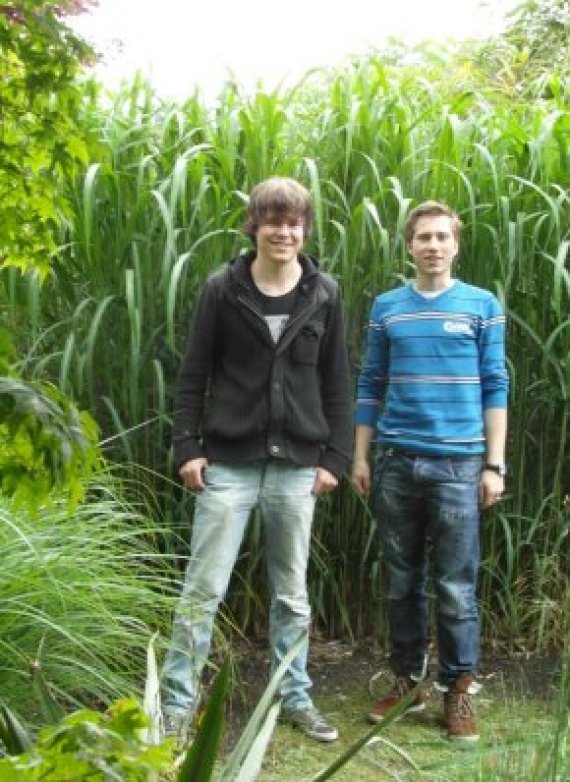Geese like an open landscape. They need that to take off, just like aircraft,’ says Jildert de Boer. Working with his fellow student Pieter Koning, the fourth-year student of Garden and Landscape Design has completed a graduation project on the problem of geese near airports and the role of elephant grass. ‘Elephant grass grows to 3 metres and is a dry grass species. Geese won’t be tempted to eat it,’ explains De Boer. The large numbers of geese around Amsterdam Airport Schiphol create problems. Two years ago an aircraft collision with geese even necessitated an emergency landing. Last year Alterra, part of Wageningen UR, concluded a ‘green deal’ with the government and a group of farmers to encourage the cultivation of elephant grass around Schiphol. The VHL student were able to join the project through the Green Cities programme. Now, three farmers have planted some 15 hectares of elephant grass as a test. ‘This is not enough to tell us whether this is the best solution, but it will reveal whether the geese stay away,’ says De Boer. The students’ calculations indicate that the crop is a lucrative one for the farmers. The tough grass stalks are used to manufacture a wide range of products, such as biogas, briquettes, stable litter, bioplastic, chipboard and concrete. There is a lot of experience of this kind of manufacturing to draw on in Germany, England and Brazil. One disadvantage of the tall elephant grass is the loss of a clear view, but the students came up with a solution to this. ‘When the distance between the road and the plot is greater than 300 metres, it is still the trees and houses that determine the look and scale of the landscape.’ De Boer and Koning have made two info-panels about their research for display at the Floriade, alongside planted elephant grass. The Floriade is also the venue they have chosen for their graduation presentation on 27 June. The panels will remain on show near the World Show Stage, between China and India, until the Floriade closes its doors. ‘We’re pretty proud of that,’ admits De Boer.
Schiphol goose-free with elephant grass
Before long the Haarlemmermeer polder surrounding Schiphol may well be both free of geese and overgrown with elephant grass standing a couple of metres tall. At least, this is what fourth-year VHL students Jildert de Boer and Pieter Koning argue for in their graduation project. Their work is on display at the Floriade.

